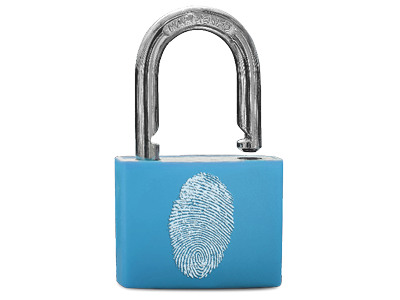Pension scams
Pension scams are common, so it is important that you are vigilant and keep your membership information safe.
Protect your pension from scams
You can learn more about the dangers of scams and the impact they can have in this video from The Pension’s Regulator, then read on below for ways to protect yourself.
In the video, pension saver Pauline shares her story of how scammers stole her £45k pension fund.
Watch Pauline’s experience to find out more about her story and learn about warning signs to look out for.
Here are some tips to help you spot the warning signs of a scam
Always reject any unexpected calls, emails, texts or social media approaches about pensions.
And don't take financial advice from a company that has contacted you out of the blue.
A government ban on cold calling regarding pensions came into force in January 2019. So, if you receive any unsolicited marketing calls about your pension, you should hang up.
Be very wary if you're offered a free pension review or advice by anyone.
Check the FCA register to make sure the company you’re talking to are authorised by the Financial Conduct Authority (FCA) and have permission from the FCA to give you financial services or advice.
Sometimes scammers may pretend to be from a reputable company, such as a one authorised by the FCA, or even someone representing the Magnox Pension Scheme or the Scheme administrator, Broadstone.
If someone has approached you claiming to be from a well-known organisation, check that the contact details they’re giving you match exactly with any letters you’ve previously received.
You could also contact the company directly, using the contact details from their official website or on the FCA register.
- Websites
Don't be fooled by slick-looking brochures and websites - anyone can pay for a professional-looking one.
Check all the contact details and accreditation you see there. If there are none, then it's probably a scam.
- Text messages
Scammers are clever, and they can make their contact numbers look like ones you would usually trust.
A scammer’s message might even appear in a conversation with legitimate texts you’ve already received. If you’re suspicious, avoid clicking links in text messages.
Check who you’re speaking to by contacting the company directly. Don’t use the numbers or address in the message, use the details from their official app or website.
- Emails
If you get an email, double check the email address details to see exactly who it has come from. While it might seem legitimate, if it’s a scam, the email address the message has come from might not match up with the sender’s name.
Other tell-tale signs to look out for are:
- Spelling errors
- Poor grammar
- Random numbers in email addresses
- Asking for PIN numbers or passwords, a legitimate company will never ask you for these details
- Random competitions, which you may not remember entering
Never allow yourself to be rushed into a decision. Take your time to make all the checks you need - even if this means turning down an 'amazing deal'.
Scammers may tell you that your current pension scheme will try to stop you transferring out, suggesting they just want to keep your money. This is not the case.
If your Scheme administrator, Broadstone, suspects a scam, we have a legal obligation to try to protect your funds.
You can read more on the Transferring your pension pages:
Always get impartial information and FCA-regulated advice before you take any action with your pension
If you’re contacted out of the blue, then don’t just use an adviser the caller suggests, as this may be part of the scam.
Similarly, if you're on the phone, a scammer may suggest you 'call someone else' to gain your trust. But even if you think you’ve hung up the scammer doesn't close the line. You may think you're on a new call speaking to a trusted adviser, when in fact you're still speaking to the scammer.
You can find more information about finding an adviser on the useful links page.
Keeping your Scheme details safe
It is highly unlikely that we will contact you by phone, unless you have an ongoing query or case. We will also never ask for security information, such as your myESPS login details.
Make sure you check the reason for any call you get about your pension, and feel confident it is legitimate before giving any personal information.
If something doesn’t seem right you can always get in touch with the scheme administrator, Broadstone, to check.
If you have registered for a myESPS account, it is also really important that you do not share your login details with anyone. If you think your details have been compromised, you can login and change your password at any time.

Where to find more information or report a pension scam
For more information about pension scams, visit fca.org.uk/scamsmart.
You can also visit MoneyHelper.org.uk for free pensions guidance and information, or contact the experts on the useful links page.
If you’re looking for financial advice, be very wary of scams and fraudsters. They often pose as advisers but are out to steal your savings. You should use a regulated financial adviser instead.
Regulated financial advisers
Financial advisers can offer you professional advice on financial decisions. In order to operate, they must be authorised by the Financial Conduct Authority (FCA).
This means they have to agree to a certain level of standards and you can get additional support through the Financial Ombudsman Service or Financial Services Compensation Scheme if things go wrong.

Unbiased
You can find a register of Independent Financial Advisers (IFAs) at unbiased.co.uk. An IFA will help you understand your pension, the options available, and how to manage your finances.
All IFAs listed on the site are registered with the Financial Conduct Authority and the first meeting is typically free.
